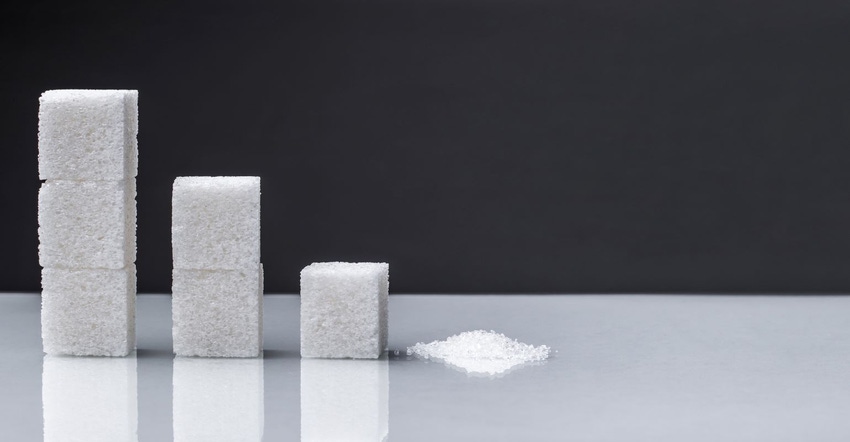A recent Massachusetts General Hospital study highlights the benefits of large-scale sugar reduction.

As consumer interest in improved health and wellness continues to trend upward, interest in natural sweeteners in favor of sugar continues. Based on the results of a recent study at Massachusetts General Hospital, that trend is likely to continue.
The researchers based their conclusions on a simulation based on the U.S. National Salt and Sugar Reduction Initiative (NSSRI), proposed in 2018. The simulation “incorporated national demographic and dietary data from the National Health and Nutrition Examination Survey [NHANES] across 3 cycles (2011-2016), added sugar-related diseases from meta-analyses, and policy costs and health-related costs from established sources.”
The results were shocking: “Achieving the NSSRI sugar reduction targets (20% reduction in packaged foods and 40% reduction in beverages) could prevent 2.48 million CVD [cardiovascular disease] events, 0.49 million CVD deaths, and 0.75 million diabetes cases; gain 6.67 million QALYs [quality-adjusted life years]; and save US$160.88 billion net costs from a societal perspective over a lifetime (Circulation. 2021. DOI: 10.1161/CIRCULATIONAHA.121.053678).” The researchers went on to say the NSSRI policy “could also reduce disparities, with greatest estimated health gains per million adults among Black and Hispanic, lower income, and less educated Americans.”
Currently, more than 40% of American adults are obese, 50% have diabetes or prediabetes, and nearly 50% have CVD, with those from lower-income groups being disproportionately burdened, the researchers noted. Reducing those numbers is key to a sustainable, healthy future.
Food & Beverage Insider insights
Consumers have already been demanding lower-sugar products, and brands have been quick to respond—not because of mandates, but because of the bottom line. FMCG Gurus data from February 2021 indicated 56% of consumers were planning to cut down on their sugar intake over the next 12 months. Additionally, 70% said they appreciated sugar-free claims. NHANES data had that number closer to 80%.
Sugar reduction is both popular and feasible. The Mass General researchers indicated implementation of the NSSRI policy would be cost-effective after just six years, and cost-saving after nine. The issue, then, continues to be making low- or no-sugar taste like consumers want. Low- and no-sugar baked goods, frozen desserts, breads and confections must taste good, or consumers will not repeat purchase. While sugar reduction is important to many consumers, eating food that tastes good is nearly always of a higher priority.
Continued research and development (R&D) into natural sweetener ingredients is of the utmost importance. Consumers will never give up the small indulgences with which they treat themselves; the onus is on industry to work toward making healthier indulgences a more prevalent option.
About the Author(s)
You May Also Like






